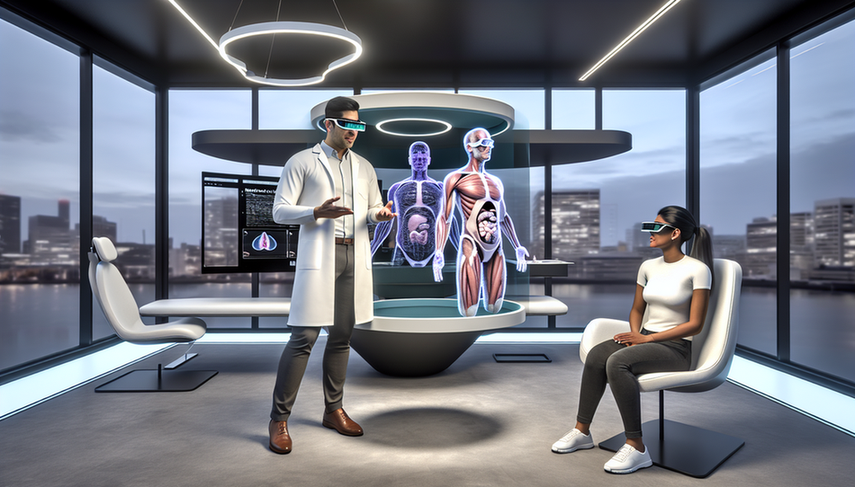The Medical Metaverse: Immersive Reality and the Future of Virtual Consultations and 3D Training for Doctors

The technological evolution has transformed multiple aspects of medicine, and the medical metaverse is emerging as one of the most promising innovations. This concept, which integrates immersive reality and virtual consultations, is revolutionizing both clinical practice and the 3D training of healthcare professionals. In this context, the doctor of the future will not only benefit from advanced tools for diagnosis and treatment but will also discover new ways to interact and learn.
Diving Deeper into the Medical Metaverse
The medical metaverse offers an environment where collaboration and education take place in shared virtual spaces. A notable example is its application in reconstructive surgery, where real-time 3D models are used for preoperative planning and resident education. Through devices like HoloLens and applications such as Microsoft Mesh, surgeons can discuss anatomy and perforator selection strategies in a more intuitive and collaborative manner. This approach not only enhances the understanding of three-dimensional relationships but also facilitates interaction between the surgeon and the learner in a shared virtual environment. [1]
Moreover, the metaverse is opening new possibilities in the management of cognitive decline. The integration of technologies such as virtual reality and artificial intelligence allows for the development of complementary strategies for intervention in mental health issues. In this regard, the metaverse not only offers opportunities for immersive consultations but also facilitates rehabilitation and support for patients, especially in a context where face-to-face communication has been limited by the COVID-19 pandemic. [2]
Conclusions
The future of the medical metaverse is vast and depends on collaboration between healthcare professionals and technology communities. The ability to offer virtual consultations and 3D training in an immersive reality environment will not only transform the way we practice medicine but will also redefine the relationship between doctor and patient. As these technologies continue to develop, it is essential for physicians to stay informed and prepared to integrate these tools into their daily practice, thereby ensuring more efficient and personalized medical care.
Referencias
- [1] The Reconstructive Metaverse - Collaboration in Real-Time Shared Mixed Reality Environments for Microsurgical Reconstruction
- [2] The paradigm and future value of the metaverse for the intervention of cognitive decline
Created 20/1/2025
